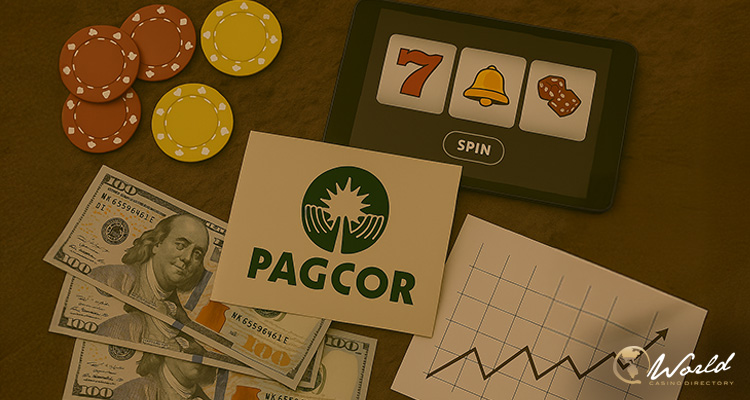The Philippine Amusement and Gaming Corporation (PAGCOR) has formally voiced its opposition to proposals seeking a blanket prohibition on online gambling, stressing that reinforcing regulatory mechanisms—not banning the industry outright—is the more practical and beneficial solution for the country.
PAGCOR Chair and CEO Alejandro Tengco, cited by Inquirer.net, highlighted the critical role that regulation plays in managing the fast-evolving online gaming sector. “Pagcor’s current stand is not a total ban, but stricter regulation,” Tengco said, underscoring that the core of the problem lies in insufficient oversight rather than the existence of the industry itself.
Legal Gambling Revenue Boosts Government and Economy
Tengco pointed out that online gambling contributes significantly to the national economy, generating more than PHP 100 billion annually through direct and indirect channels. Of that amount, PAGCOR reportedly earned over PHP 50 billion in license fees alone for 2024. This figure excludes additional tax payments made by gaming operators to the Bureau of Internal Revenue (BIR). One of PAGCOR’s largest licensed operators is said to have remitted an estimated PHP 30 billion to PHP 40 billion in taxes, Tengco revealed.
Apart from tax revenue, the sector supports approximately 32,000 direct jobs and indirectly sustains various ancillary industries, including security, transportation, dining establishments, and logistics services. According to Tengco, “There are security guards, drivers, messengers, restaurants… various transportation companies used by those involved in the online gaming industry. So that’s the indirect one.”
Tengco warned that a total prohibition could lead to the erosion of these economic gains. “So the impact of this is hundreds of billions in revenue for our country that could potentially be lost if the total ban is enacted,” he emphasized.
Illegal Operators Identified as Primary Threat
While acknowledging public concern about the societal risks tied to gambling, Tengco argued that illegal foreign-run platforms pose a far greater threat to Filipinos than legitimate, regulated services. “Right now, we can only capture about 45 to 50 percent of the entire online gaming sphere… because there are so many illegal operators that are still operating,” Tengco said, adding that these operators often have no accountability or protective measures in place—such as age restrictions—making it easier for minors to engage in gambling and fall victim to fraud.
Complaints from players about withheld winnings and lost deposits have become more frequent, further highlighting the dangers posed by these unregulated platforms operating in the Philippines. Tengco reiterated that, “What is really destroying the industry today are the illegal operators coming from other countries who are targeting Filipino customers.”
Unlike regulated entities under PAGCOR’s jurisdiction, which require participants to be at least 21 years old, these illegal operators impose no such limits.
Regulation Measures in the Works
In response to these challenges, PAGCOR is working on several regulatory improvements aimed at better safeguarding Filipino gamblers. Among the initiatives in development are artificial intelligence (AI)-based systems that can help detect problematic behavior and implement player protections. This includes tools such as a self-exclusion feature and a cooling-off mechanism that temporarily blocks users after substantial losses.
“If it sees, ‘there are more losers here than winners,’ then that will automatically stop you. You can’t gamble anymore… because of this cooling-off software,” Tengco explained.
Furthermore, PAGCOR plans to launch a 24/7 helpline in partnership with a foundation specializing in gambling addiction. The agency is also collaborating with a rehabilitation center to support recovery for individuals affected by gambling-related harm.
Advertising and Access Restrictions to Follow
PAGCOR is also tightening its grip on advertising practices associated with online gambling. A memorandum of agreement with the Ad Standards Council is expected soon, aimed at regulating the spread of large-scale gambling billboards. “They spring up like mushrooms, there are billboards everywhere… So that will be regulated,” Tengco said.
Gambling ads on primetime TV will also be curtailed. Tengco confirmed PAGCOR has recommended that ads be prohibited during family-viewing hours from 5:30 p.m. to 8:30 p.m. The Ad Standards Council is also studying similar controls for social media promotions.
To prevent minors from accessing gambling platforms, PAGCOR is considering raising the minimum deposit requirement. “We will study the exact minimum amount of deposit to solve the issue of online gambling in the country,” Tengco added.
Government Reviews Broader Policy Options
President Ferdinand Marcos Jr. has been closely monitoring the ongoing debate around online gambling. According to Palace Press Officer Claire Castro, the President understands the distress experienced by families whose members have become addicted and is exploring more refined policy interventions.
Recent collaboration between PAGCOR and the Department of Information and Communications Technology has already led to the shutdown of 7,000 unauthorized online gaming sites. Meanwhile, broader legislative action is also underway. Senator Juan Miguel Zubiri has filed a bill calling for a total ban, while Senator Sherwin Gatchalian has proposed prohibiting the use of e-wallets in online gambling—although he does support tighter regulatory control as a compromise. Tengco echoed Gatchalian’s position, noting, “That way, the industry can continue to be regulated, and at the same time, the government also makes money.”



